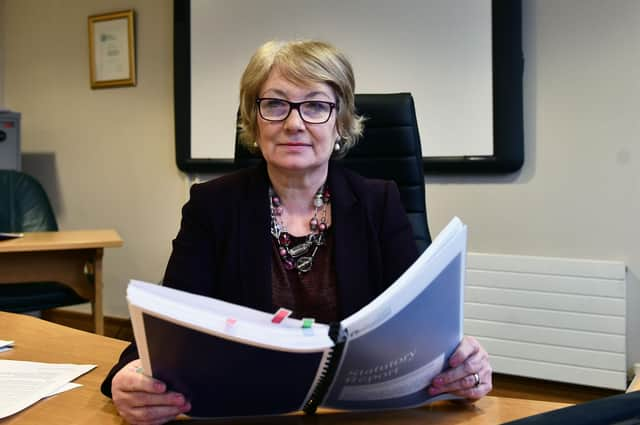Ex-top detective: Northern Ireland’s retired police rank-and-file will welcome challenges to Police Ombudsman over ‘collusive behaviour’ findings


Norman Baxter was speaking after the News Letter revealed that a trio of judicial review cases are to be heard simultaneously next week.
One of the key aspect of the proceedings centres on the ombudsman’s use of the term “collusive behaviours”.
Advertisement
Hide AdAdvertisement
Hide AdIn 2020 the Court of Appeal in Belfast curbed the ability of the ombudsman Marie Anderson to make findings “collusion” .
Since then the ombudsman has gone on to refer to “collusive behaviours” instead – and now a group of officers and former officers have united to challenge that.
A preliminary hearing of their three cases together is set for next Tuesday.
The ombudsman’s office has said it will be “robustly defending”its position.
Advertisement
Hide AdAdvertisement
Hide AdMr Baxter says that the “normal, reasonable person” would take the term “collusive behaviour” to mean pre-meditated support for a terrorist act.
However in the hands of the ombudsman it “could mean anything” – such as not interviewing a witness after a murder has taken place.
“I’d say there’d be a broad welcome in the retired police officer community that legal clarification has been sought,” he said.
He also said: “There’s no mechanism whereby police officers who are aggrieved – or indeed complainants who are aggrieved – by the conduct of the Police Ombudsman can have those concerns independently addressed.
Advertisement
Hide AdAdvertisement
Hide Ad“In effect what happens is that if someone is not happy with a decision by the police ombudsman they register a complaint which is then investigated by the chief exec of the police ombudsman’s office.”
Meanwhile DUP MP Gavin Robinson said that the term “collusive behaviours” is “laced with innuendo and allows people to draw I think damaging and very nefarious conclusions”.
“It seems to attach criminal culpability to actions that are nothing of the sort,” he said.
“So I think it’s well worth exploration in the courts.”
Previously the ombudsman’s office has said the use of the term “collusive behaviours” is “entirely within the boundaries” of what the court have said they will permit.
Advertisement
Hide AdAdvertisement
Hide AdLast night it told the News Letter: “The Police Ombudsman makes clear in each public statement the lawful basis for her conclusions.
“In relevant public statements, where the ombudsman addresses allegations of collusion, she expressly states that the powers of the Police Ombudsman were unanimously ruled on by the Court of Appeal...
“As stated by the Court of Appeal, the Police Ombudsman’s role is limited to acknowledging whether the matters ‘uncovered’ by an investigation are ‘very largely’ what the families claimed constituted ‘collusive behaviour’.
“Where the Police Ombudsman identifies ‘collusive behaviours’ she provides clear reasoning for her decision.
Advertisement
Hide AdAdvertisement
Hide Ad“As with all public authorities, the appropriate mechanism to challenge a decision by the Police Ombudsman is through judicial review.”